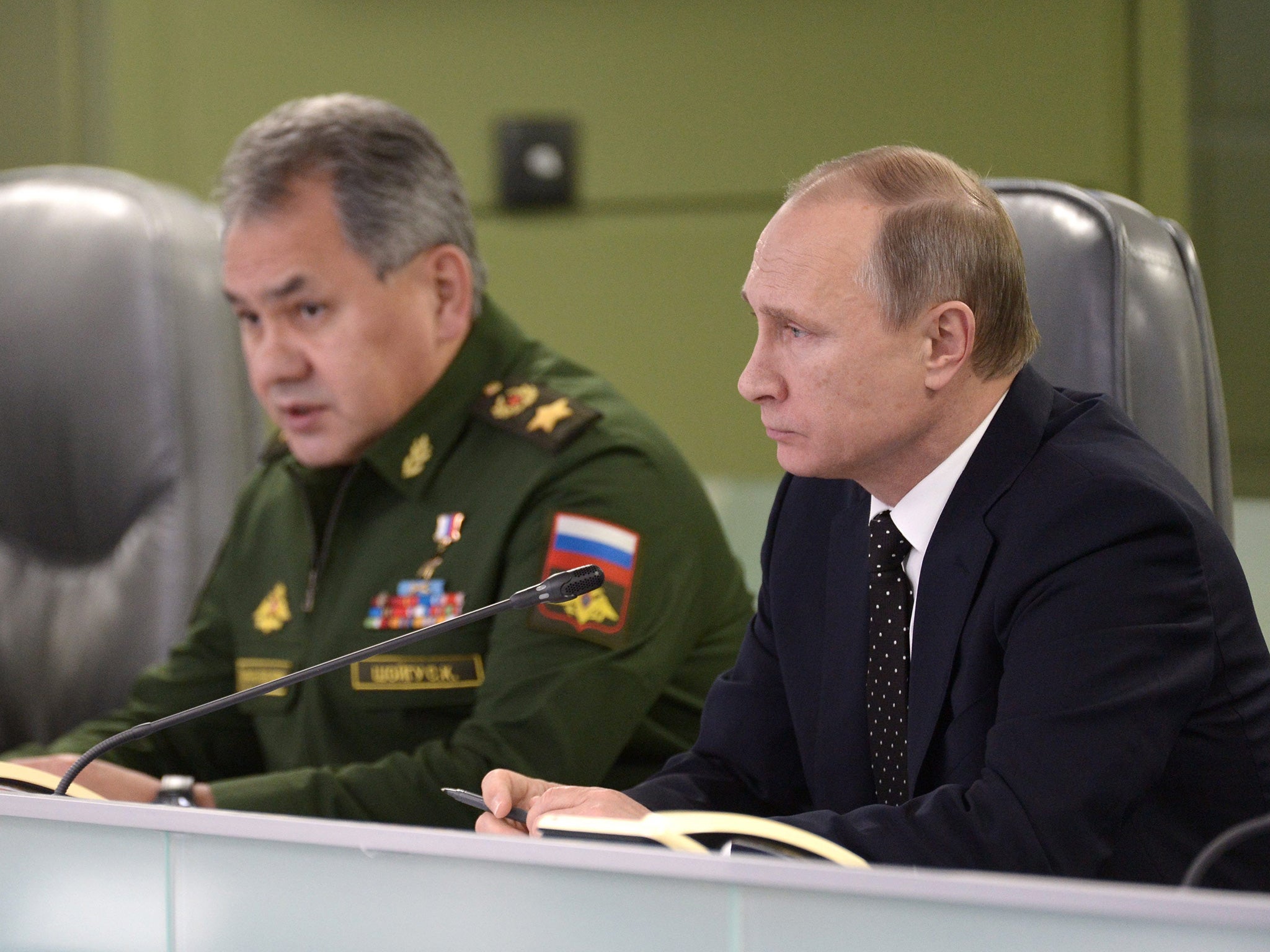Paris attacks: Russia and the West could have been on same side long before now
Vladimir Putin is suddenly at the centre of a fast-changing diplomatic scene after being ostracised by the West


Your support helps us to tell the story
From reproductive rights to climate change to Big Tech, The Independent is on the ground when the story is developing. Whether it's investigating the financials of Elon Musk's pro-Trump PAC or producing our latest documentary, 'The A Word', which shines a light on the American women fighting for reproductive rights, we know how important it is to parse out the facts from the messaging.
At such a critical moment in US history, we need reporters on the ground. Your donation allows us to keep sending journalists to speak to both sides of the story.
The Independent is trusted by Americans across the entire political spectrum. And unlike many other quality news outlets, we choose not to lock Americans out of our reporting and analysis with paywalls. We believe quality journalism should be available to everyone, paid for by those who can afford it.
Your support makes all the difference.When Vladimir Putin responded to the confirmation a bomb had caused the Russian Metrojet crash in the Sinai desert on 31 October, there was a distinct echo of George W Bush’s declaration after 9/11. “We’ll look for them everywhere,” said the Russian President, “wherever they are hiding. We’ll find them in any corner of the planet and punish them.” Nor was this the only time in recent weeks that history has seemed to repeat itself, just in a different configuration.
The Russian President, having been ostracised by much of the Western world since the annexation of Crimea in March 2014, is suddenly at the centre of a fast-changing diplomatic scene. Since launching its first air strikes in support of Syria’s President Assad last month, Russia has become a military player in the region. Its intervention also appears to have made it a target for Isis attack, and it has the loss of 224 lives to prove it.
After the Isis-claimed attacks in Paris on Friday night, Putin was one of the first to call President François Hollande with his condolences, as indeed, he was the first to call President Bush after 9/11. Ever since taking office, Putin has seen himself and Russia as being on the front line against Islamic extremism, and he has regarded the threat - whether from Chechen separatists or al-Qaeda or so-called Islamic State - as one and indivisible. It is not a stance the US and Europe have always accepted, or even understood. That may now be changing, along with much else. Most of the adjustments, though are in fact coming from the Western side, not from Putin.
The ice around Russia began to crack in May, when US Secretary of State, John Kerry, spent several hours in talks with Putin. The UK has taken one of the hardest lines against Russia on Ukraine but David Cameron was among the first to call him after the Metrojet crash, and he spent an hour with Putin at the weekend. This was inconceivable a year ago. Ukraine, it appears, is being parked in one diplomatic box - sanctions remain, and Kiev and Moscow are being urged (quietly) to fulfil the Minsk-2 agreement - while the US and Russia, along with Turkey, Iran and others, are talking about Syria in Vienna.
There is still scrapping about how long Assad can remain, about the dangers of so many planes in the skies over Syria and about how far Isis is being used as a pretext for all involved to go after their particular enemy. But Russia’s diplomatic position is almost unchanged from two or more years ago: Assad is preferable to the destruction of the Syrian state; any settlement must be underwritten by the UN, and any “regime change” decided by Syrians themselves.
It would appear this is the way diplomacy is heading. But Russia and the West could have been on the same side long before now, and the latest Isis atrocities underline their common interest. Even now there is hesitation on the Western side, with some wary Putin wants to hold a Syrian deal hostage to a free pass for Moscow on Ukraine. The truth, though, may be different. With the spotlight elsewhere and a seat at the top table on Syria, Russia has time to accept it may have won Crimea but it has lost Ukraine.
Join our commenting forum
Join thought-provoking conversations, follow other Independent readers and see their replies
Comments